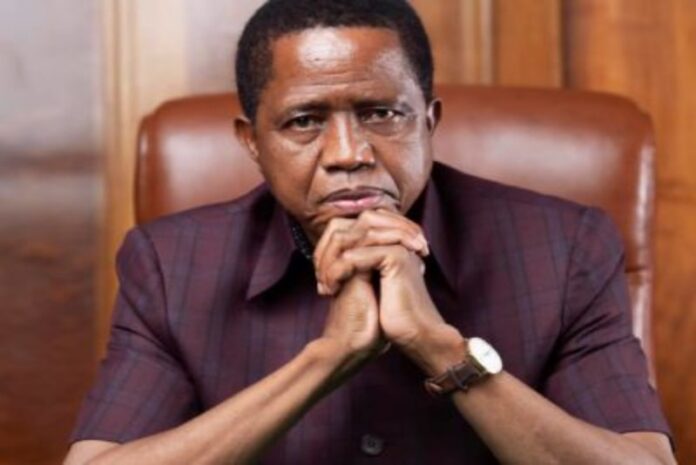By Staff Writer
As the former governing Patriotic Front (PF) begins to count the cost of its incredible loss, the party must begin the process of serious introspection to pin point how it got things so horribly wrong, and what it must do next time in the hope that it can bounce back. Where the party spectacularly lost it, was in its marketing strategy, in that its premise was founded on a lie.
Despite all the evidence that was plain to see, the party’s information officials refused to acknowledge that Zambians were hurting and the unfavorable economic and social conditions had succeeded in making life difficult and unbearable. It was as simple as that – “it’s the economy, stupid!”
Faced with this obvious truth, what did the PF do?
It attempted to hide the evidence, in plain view of all who had eyes to see, and proceeded to bury its head in the sand.
Antonio Mwanza, the party’s media and publicity director, and Sunday Chanda, his predecessor, did their utmost best to dismiss the plainly obvious with virulent attacks on persons or institutions that attempted to challenge their one-sided narrative espousing a prosperous economy and happy contented citizens.
A critical outcome of this strategic myopia was visible in the party’s publicity campaign.
Not only did it lack a condensed all-encompassing theme that resonated with the electorate, but it was also dishonest.
Across the length and breadth of the country, hundreds of green billboards stared down at you and screamed: “Vote Edgar Chagwa Lungu and the PF that have brought you change!”
The fact of the matter was that yes, the PF had indeed brought change. But what type of change was this? Was it change for the better? Or change for worse?

?
All economic indicators show that the change was not for the better.
Yes, superficially, some roads had been improved and in some cases, new ones had been built. Yet in almost all the cases, evidence showed that these roads were overpriced and the change had been pocketed by PF officials. Furthermore, the workmanship on many of them was second rate, despite their high cost.
Schools and hospitals had sprung up where they previously had not existed. But in many cases, there were not enough teachers to man them and in the new hospitals and clinics, doctors and nurses were in short supply and medicines a luxury.
By and large, much of the so-called “development” and “change” was to be seen mostly in the capital Lusaka, and even there, the road decongestion construction project was predominantly Indian government financed, and essentially, financed by Zambian taxpayers.
The same was true for the hospitals, clinics and roads. It was the poor Zambian taxpayer who had financed them all – and not as the PF would have wished us to believe, the result of the party’s largesse.
But none of these were reason enough for the PF to relent in its slick and expensive campaign to hoodwink the gullible electorate – or so it thought.

?
“For Continuity, Unity and Prosperity: Edgar Chagwa Lungu for President!” the giant election banners proclaimed. But exactly what did they mean by “continuity,” by “unity” and by “prosperity?” Was “continuity” the “continuity” of high prices of essential commodities and general hunger and poverty? If not, what “continuity” was this?
Was “unity” the same “unity” contrived by divisive tribally-inclined messages as espoused by the likes of Chishimba Kambwili, as they crisscrossed the country in a last-ditch effort to convince voters that the PF was their savior? If not, what “unity” was this?
Was “prosperity” the rise in Zambia’s debt to GDP ratio of 104% as pronounced by the latest Zambia report by the Africa Development Bank and the massive rise in the monthly basic needs and nutrition basket to K8,495 for a family of five surviving on a monthly salary of K840 for a domestic worker?

The PF’s campaign message also suffered from its vague opaqueness.
For instance, it proclaimed in relation to mining, that the party’s achievement was declaring “gold a strategic mineral.” Who didn’t know that gold is a strategic mineral anyway? And added to that, so what?
Another achievement: “upscaled diversification from maize to other cash crops.”
Another one in aquaculture: “fish production from 5,000 to 38,000 metric tones per year.”
Women empowerment: “Reserve 50% of available land for women.”
To the average Zambian voter, all these so-called achievements did not resonate with his/her everyday challenges for survival. They were empty theoretical slogans at best, and silly gobbledygook at worst. The language, to the typical semi-literate Zambian voter, was unintelligible and obscure – its meaning and significance, lost. Indeed, the PF’s campaign message ended up lost in translation.
(All photos from President Lungu’s Facebook page)

Discover more from MAKANDAY
Subscribe to get the latest posts sent to your email.



